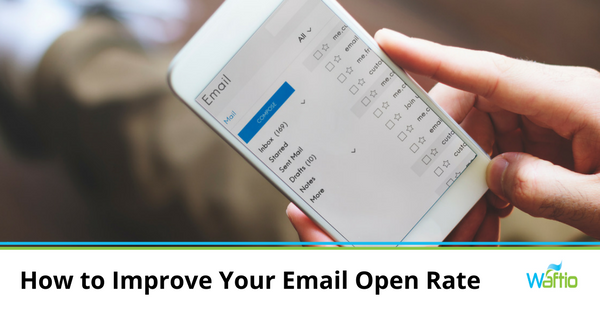According to eMarketer, almost 237 million Americans will use email in 2017. This represents a significant portion of the online population. People read email! Getting your message out isn’t hard, it’s just a matter of presenting it professionally and hitting send. The tough piece is convincing your customers to open your latest message.
The bottom line is the subject line
It all starts with the subject line. Enticing readers to open your email is your first duty. Because of that, the subject line needs to be something more than what you can dash off at the last moment. I have had emails where I’ve spent more time crafting the perfect subject line than I spent writing the email.
If the subject doesn’t grab them, they won’t read it! Personalize your email subject lines, most ESP (email service providers) allow you to do this easily.
If your email contains an offer, tell your audience about it, so your recipients know what’s inside the email waiting for them. Keep it concise, active, and inviting.
The perfect send time
Timing your email send perfectly can lead to greater open rates. Email marketers agree that mid-week (Tuesday, Wednesday or Thursday) emails are most successful for B2B businesses. If you’re B2C, your delivery window widens by Friday, Saturday, and Sunday.
I like to send emails early in the morning, so they’re in the inbox when it’s first opened in the am. Or around lunch, people ease back into work by checking their emails. Because they’re full and satisfied, they’re more likely to be patient enough to read the mail rather than deleting it for lack of time to read it.
If your email is promoting an event with specific timing, send the email a couple of weeks before and again a couple of days before the event.
Valuable email content
Give your customers something of value in every email. Even if it’s just tips and tricks on how to do something. When you offer value, you’re less likely to end up in the spam folder.
It’s a good idea to segment your list right out of the gate. Group your readers by products they’ve purchased, where their IP address is located, or special interests. Your ESP will now their location from their IP address.
Add several email subscription forms to your list with free downloads and segment as to the download they choose or page they subscribe on.
Here are a few of the most common data sets you may want to segment by:
- Time they have been on your mailing list
- What they’ve purchased from you
- Date of the last purchase from your company
- Last interaction
Drilling down with that information can lead to more effective and directed email campaigns.
Where do your readers view their email?
Take your email recipients’ lifestyle into account as well. A full 64% of decision-makers read their emails via their smartphone. (Want to know what your readers are viewing on and you use MailChimp? Learn how here.) If your email isn’t formatted to be easily read on a mobile screen, you may receive fewer click-throughs and find your open rate decreasing over time.
If you make these changes and don’t see an immediate turnaround in a declining open rate, don’t get discouraged. There is an art to strategic email marketing. When you pay attention to what’s going on with your email recipients, you’ll become better tuned to what works best for your business.

Author: Mike Gingerich, President of web firm Digital Hill, Co-Founder of TabSite .
Digital and Social Media Marketer, Speaker, and Business Consultant. Part geek, part marketer, total digital junkie! Seeking to add value, make the complex simple, and leave a positive impact.
Follow me on twitter: @mike_gingerich.




